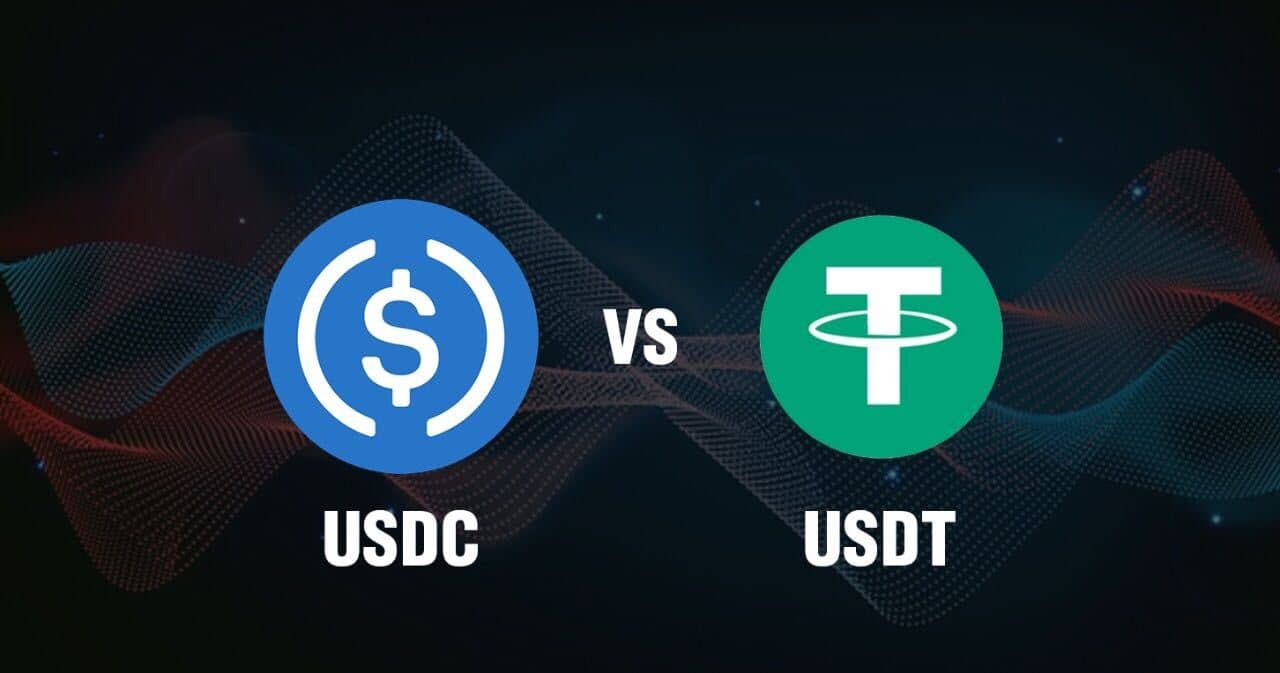USDT vs USDC: A Comprehensive Guide

Tether’s USDT stablecoin is backed by fiat money, cash equivalents, and receivables from loans made to third parties, whereas USDC, the safest stablecoin, is backed by cash and short-term U.S. government bonds. This guide will provide a professional, clever, and educational overview of USDT and USDC, comparing their features and discussing expert opinions.
Understanding Stablecoins
As an investor, you may have come across the terms USDT and USDC and wondered, “What is USDC vs USDT?” In the world of stablecoins, understanding the differences between these two popular options can help you make informed decisions when investing or trading.
Stablecoins are cryptocurrencies designed to maintain a stable value by pegging them to a reserve of assets, such as fiat currencies like the US dollar. They provide a means of reducing volatility, making them attractive for investors and traders seeking stability amidst the often-unpredictable cryptocurrency market.
Overview of USDT and USDC
USDT (Tether) and USDC (USD Coin) are two popular stablecoins pegged to the US dollar. USDT is issued by Tether Ltd., while USDC is a product of the collaboration between Circle and Coinbase. Both stablecoins aim to maintain a 1:1 value ratio with the US dollar, providing users with a stable digital asset for trading, investing, and payments.
Comparison of USDT and USDC
Market Capitalization
When comparing USDT and USDC, one of the first factors to consider is market capitalization. USDT has a significantly larger market cap compared to USDC, making it the more dominant stablecoin in the market. However, USDC has been gaining traction and growing its market share in recent years.
Transparency and Regulation
Transparency and regulation are crucial factors when evaluating stablecoins. USDC is considered more transparent and regulated than USDT, as it is issued by a consortium that adheres to strict compliance standards and regularly undergoes third-party audits. In contrast, Tether has faced scrutiny in the past due to concerns about the reserves backing USDT and its relationship with the Bitfinex exchange.
Accessibility and Adoption
Both USDT USDC are widely accessible on various crypto exchanges and wallet services. However, as USDT has been around longer and has a larger market cap, it tends to have broader adoption across platforms and services.
Fees and Liquidity
When it comes to fees and liquidity, USDT generally has a slight edge over USDC, given its larger market cap and wider adoption. However, differences in fees and liquidity may vary across platforms, so it’s essential to research the specific exchange or service you plan to use.
Expert Opinions on USDT vs USDC
Expert opinions on USDT vs USDC can vary, but many industry professionals appreciate USDC’s transparency, regulatory compliance, and third-party audits. On the other hand, some traders and investors prefer USDT due to its larger market cap and widespread adoption. Ultimately, the choice between USDT and USDC will depend on your specific needs and preferences.
Conclusion
In conclusion, the comparison of USDT and USDC requires a clear understanding of stablecoins, their specific characteristics, and the factors that set them apart. By examining market capitalization, transparency, regulation, accessibility, adoption, fees, and liquidity, you can gain a comprehensive insight into the strengths and weaknesses of each stablecoin.
By considering expert opinions on USDT and USDC, you can make an informed decision about which stablecoin best aligns with your investment goals and risk tolerance. As you venture into the world of cryptocurrencies, remember to stay informed, adaptable, and persistent capitalizing on the opportunities that this innovative and rapidly evolving market presents.






